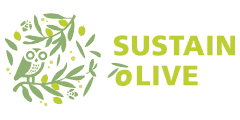Europe concentrates approximately 70% of the world’s olive oil production. Tunisia and Morocco contribute 10% of world production. In total, 7.7 million hectares are accounted for in the Mediterranean basin. Therefore, the cultivation of the olive tree is the backbone of the socio-economic and cultural life of many regions of the Mediterranean Basin.
The olive grove sector, and especially that of olive oil, is a leading economic actor for its ability to generate employment (more than 1,000,000 annual peonads), being the economic livelihood of large areas of the Mediterranean basin and one of the sectors responsible for the brake of rural depopulation. On the other hand, olive cultivation is also the predominant landscape of these areas. In addition, the olive oil sector represents an important source of healthy foods and is appreciated around the world as an integral element of the Mediterranean diet model, which since 2013 is an intangible cultural heritage of UNESCO and becomes a hallmark for some regions of the Mediterranean basin.
The SUSTAINOLIVE consortium faces the paradox that, despite having recognized the health benefits of olive oil consumption, its production is based on an increasingly less sustainable model. The challenge remains to reconcile practices in olive groves that are profitable and sustainable, considering the protection of the environment and avoiding the overexploitation of natural resources.
To achieve this objective, it is necessary to improve the natural environmental regulation favouring biodiversity, the optimization of inputs, the development of new cultivation systems and the use of technologies adapted to this transformation. Thus, the general objective of SUSTAINOLIVE is to promote the sustainability of the olive oil sector through the implementation and promotion of innovative and sustainable solution sets in management practices, based on agroecological concepts and in effective and active exchange of knowledge in the main actors of the sector.

